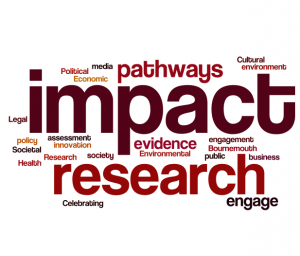The Public Engagement with Research Team are running two workshops this month: Evaluation of Engagement and Advanced Evaluation.
These sessions will be delivered by Dr Jamie Gallagher, one of the most experienced engagement trainers in the UK. Jamie is a dynamic and engaging trainer who makes these sessions enjoyable as well as useful.
It is recommended that both sessions are attended to gain the full benefit. The sessions will build skills from the basic principles of evaluation, through to being able to develop evaluation plans for even the most complex topics, exploring data capture, analysis and reporting. You’ll also learn how to write evaluation reports for funders or for the REF (Research Excellence Framework).
While both sessions are recommended, attending just the first session may be appropriate for your needs. It is advised against only attending the second session.
Evaluation of Engagement: Monday 20 February, 9am-12:30pm, Talbot Campus
This workshop will highlight what you need to ask yourself, and the public, to ensure you can demonstrate the success of your intervention and capture the long term impact of it.
Successful public engagement can benefit research, researchers and the public – but how do you go about demonstrating this change? This workshop will guide you through the best evaluation processes showing you when, why and crucially how to use evaluation to give you reliable and clear data. It will highlight how to demonstrate success to funders, record impact for the REF, help to improve your processes, and give you a better understanding of the people you are connecting with.
At the end of the workshop, you will be able to:
- Understand the purposes, uses and limitations of evaluation
- Apply event-appropriate evaluation methods in multiple scenarios
- Prepare useful, answerable and relevant evaluation questions
- Devise and deliver your own evaluation plan
- Interpret and report evaluation data.
To book a place on this workshop please complete the booking form.
Advanced Evaluation: Tuesday 21 February 9am – 12:30pm, Talbot Campus
Taking an in-depth look at evaluation, participants will explore data capture, analysis and reporting. From surveys to focus groups, you will learn how to format powerful questions and report meaningful data. Discover how to develop evaluation plans for even the most complex topics. You will also learn how to write evaluation reports for funders or for the REF.
This workshop requires good base knowledge of evaluation, ideally from attending the previous Evaluation of engagement workshop.
To book a place on this workshop please complete the booking form.
For any queries regarding either of these sessions please contact the Public Engagement team: publicengagement@bournemouth.ac.uk.














 Second NIHR MIHERC meeting in Bournemouth this week
Second NIHR MIHERC meeting in Bournemouth this week Dr. Ashraf cited on ‘Modest Fashion’ in The Guardian
Dr. Ashraf cited on ‘Modest Fashion’ in The Guardian NIHR-funded research launches website
NIHR-funded research launches website MSCA Postdoctoral Fellowships 2025 Call
MSCA Postdoctoral Fellowships 2025 Call ERC Advanced Grant 2025 Webinar
ERC Advanced Grant 2025 Webinar Horizon Europe Work Programme 2025 Published
Horizon Europe Work Programme 2025 Published Horizon Europe 2025 Work Programme pre-Published
Horizon Europe 2025 Work Programme pre-Published Update on UKRO services
Update on UKRO services European research project exploring use of ‘virtual twins’ to better manage metabolic associated fatty liver disease
European research project exploring use of ‘virtual twins’ to better manage metabolic associated fatty liver disease